Pimples are a common skin disease that causes skin lesions. They most often appear in adolescents but can also occur in infants, children, and adults, especially on the face, neck, upper back, arms, and chest. Treatment includes appropriate skin care and hygiene, topical medications, antibiotics, and other medications.
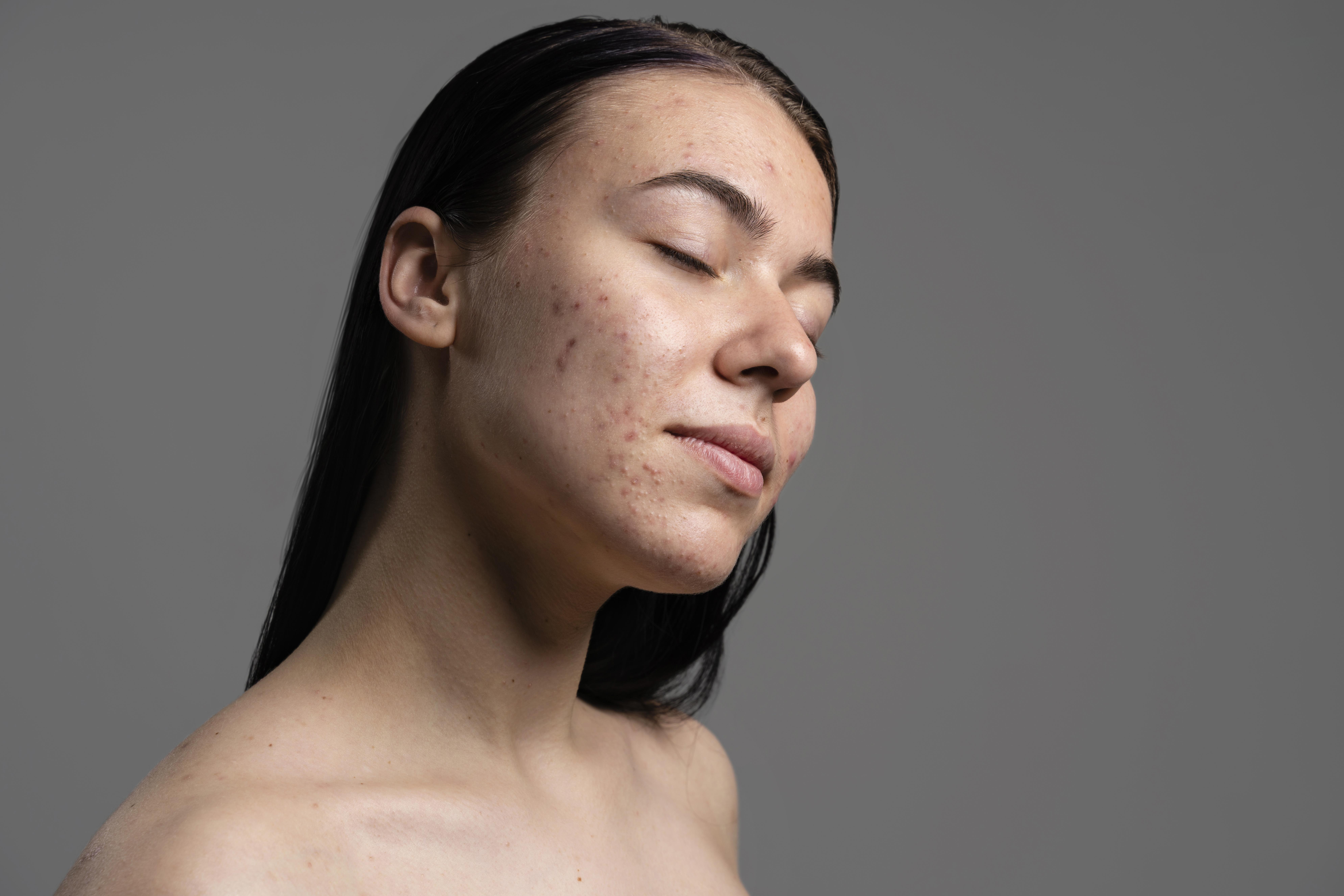
The following clinical forms are distinguished:
The mechanism of acne vulgaris involves the interaction of many factors that cause the formation of comedones and the development of inflammation.
There are many causes of pimples![]() , including:
, including:
Male sex hormones, called androgens, also play a part – they encourage the production of sebum. High levels of androgens in the blood, known as hyperandrogenism, can lead to pimples, but most people with acne vulgaris do not have too many androgens.
There's a suspicion that diet can affect pimples, where milk and high-glycemic-index products might have a negative effect.
Genetic factors play an essential role in causing these skin issues. People with persistent pimples usually have family members who have also had acne.
The course of pimples is chronic, usually in the summer the lesions improve. Various factors may contribute to the exacerbation of acne lesions, such as:
The impact of pimples![]() on the emotional state depends on several individual factors – starting from mental sensitivity and resilience, through the professed system of values and primary self-esteem, to external circumstances, such as support from the environment or access to specialist care.
on the emotional state depends on several individual factors – starting from mental sensitivity and resilience, through the professed system of values and primary self-esteem, to external circumstances, such as support from the environment or access to specialist care.
Due to the ubiquitous cult of the body and the power of media messages full of retouched, flawlessly smooth faces, skin ailments often cause complexes and lower self-esteem. People struggling with pimples also tend to blame themselves and look for their sources in improper care, poorly selected diet, or negligence. They immerse themselves in a paralyzing sense of guilt, which, combined with a sense of shame, often leads to social withdrawal.
All this translates into their social life and everyday functioning in study and work. Low self-esteem prevents you from taking up professional challenges and achieving your goals.
The doctor diagnoses pimples based on the clinical picture, interview, and additional tests performed. Some people require additional tests, such as hormonal tests.
Wash the face twice daily. It helps to remove impurities, dead skin cells, and extra oil from the skin's surface. Cleaning more often than twice daily may do more damage than good. Use warm water and a mild facial cleanser. Using an intense soap can harm already inflamed skin and induce more irritation.
Regular exfoliation prevents the formation of horny plugs at the mouths of the sebaceous glands and hair follicles, which, by blocking the excretion of sebum, lead to the formation of blackheads or, as a consequence, inflammatory eruptions. The selection of the appropriate peeling depends on the type of pimples and skin reactivity. In the case of inflammatory lesions, especially purulent ones, avoid mechanical peelings as they could cause the lesions to spread.
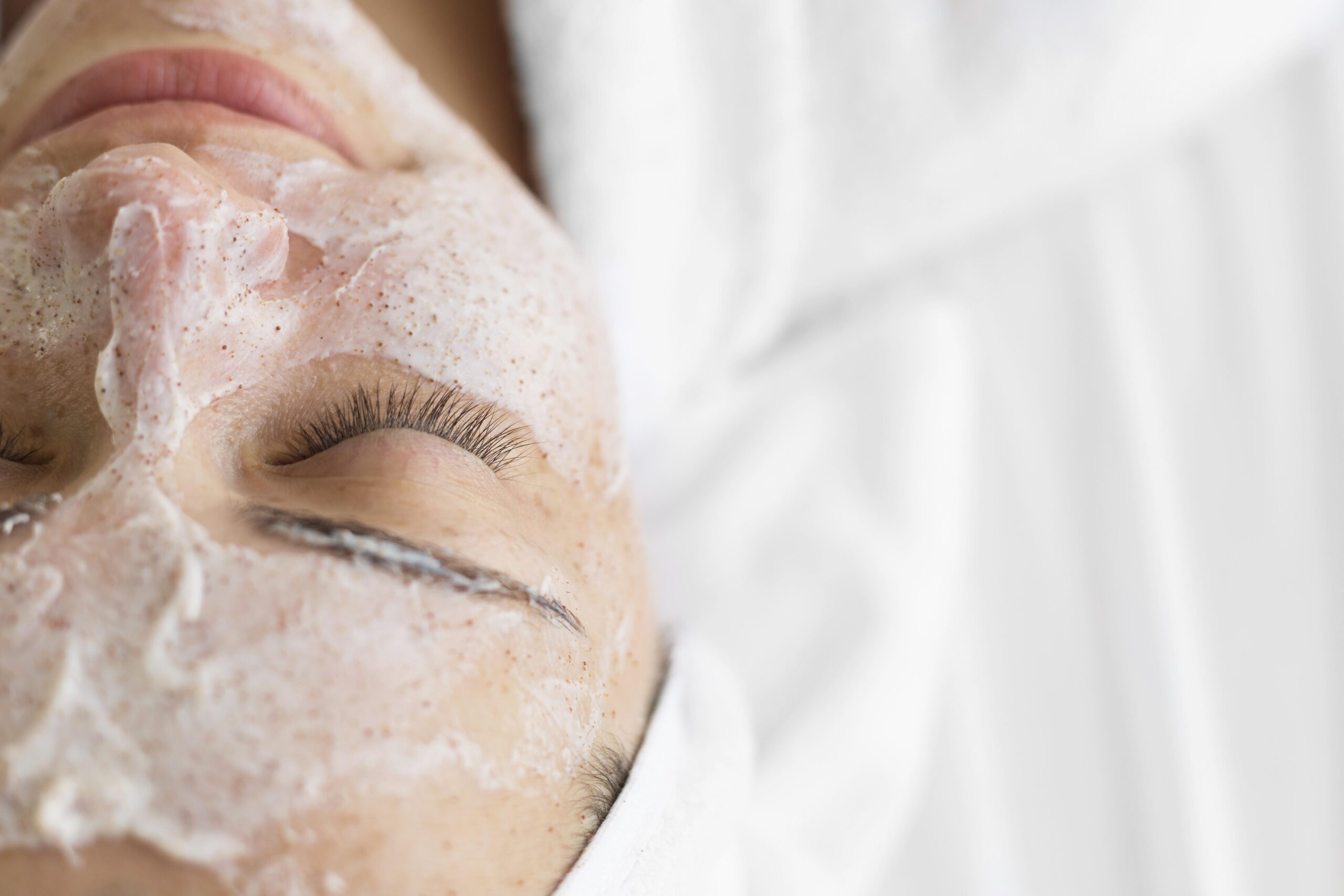
Toning is not an essential step in skin care![]() , but properly selected products can enhance the effects of other cosmetics. Skin toning should be done every time our skin comes into contact with water and cleansing agents – gel, facial foam, or peeling, regardless of whether we cleanse our face during the morning or evening toilet. It is especially important in the evening because during night care, we usually also apply moisturizing creams or serums to our facial skin, which are supposed to improve the condition of our skin. Toned skin will absorb the applied products much better.
, but properly selected products can enhance the effects of other cosmetics. Skin toning should be done every time our skin comes into contact with water and cleansing agents – gel, facial foam, or peeling, regardless of whether we cleanse our face during the morning or evening toilet. It is especially important in the evening because during night care, we usually also apply moisturizing creams or serums to our facial skin, which are supposed to improve the condition of our skin. Toned skin will absorb the applied products much better.
When caring for problematic skin, it is worth using a serum that normalizes the functioning of the sebaceous glands. Cosmetics with a concentrated content of ingredients such as niacinamide (vitamin B3), zinc, azeloglycine, lactobionic acid, prebiotics, probiotics, and postbiotics will support the skin in the fight against imperfections and reduce the visibility of dilated sebaceous gland openings. Serums with acids will also work well in evening care.
Properly moisturized skin stops producing excess sebum. When choosing moisturizing cosmetics for acne-prone skin, you should avoid comedogenic ingredients, which may contribute to the formation of blackheads.
After applying a moisturizing cream, you cannot forget about protection against UV radiation and applying a product with a high SPF filter (minimum 30).
Acne skin lesions (blackheads, inflammatory lumps) should not be squeezed out![]() , as this may result in unsightly scars and discolorations that are very difficult to treat later.
, as this may result in unsightly scars and discolorations that are very difficult to treat later.
For people with mild acne, you can initially try self-treatment with over-the-counter products![]() . Over-the-counter acne treatments may include products containing salicylic acid, benzoyl peroxide, sulfur, alpha-hydroxy acids, adapalene, or tea tree oil. Combining several measures may be more effective than using just one product.
. Over-the-counter acne treatments may include products containing salicylic acid, benzoyl peroxide, sulfur, alpha-hydroxy acids, adapalene, or tea tree oil. Combining several measures may be more effective than using just one product.
The doctor will recommend appropriate treatment![]() depending on the type of acne and its severity. Some methods are effective for treating non-inflammatory pimples (e.g., blackheads). In contrast, others are effective for acne associated with inflammation (e.g., inflammatory nodules) of the skin or in people with both non-inflammatory and inflammatory acne lesions. Usually, combining different medications is more effective than treatment with one drug. Acne treatment involves both topical medicaments applied to the skin and oral tablets.
depending on the type of acne and its severity. Some methods are effective for treating non-inflammatory pimples (e.g., blackheads). In contrast, others are effective for acne associated with inflammation (e.g., inflammatory nodules) of the skin or in people with both non-inflammatory and inflammatory acne lesions. Usually, combining different medications is more effective than treatment with one drug. Acne treatment involves both topical medicaments applied to the skin and oral tablets.
Different topical treatments are used to manage pimples, including:
Acne is treated with oral antibiotics, retinoids, and hormonal medications. It applies to moderate and severe forms of pimples but also patients with less severe lesions if the disease significantly impairs the quality of life or if the acne lesions disappear, leaving scars.
Antibiotics include tetracyclines and macrolides.
Oral antibiotics are not used alone but are combined with local treatment, e.g., with preparations with retinoids or benzoyl peroxide applied to the skin. After completing treatment with oral antibiotics, the doctor may recommend maintenance therapy with topical medications (retinoids or azelaic acid) to prevent acne flare-ups.
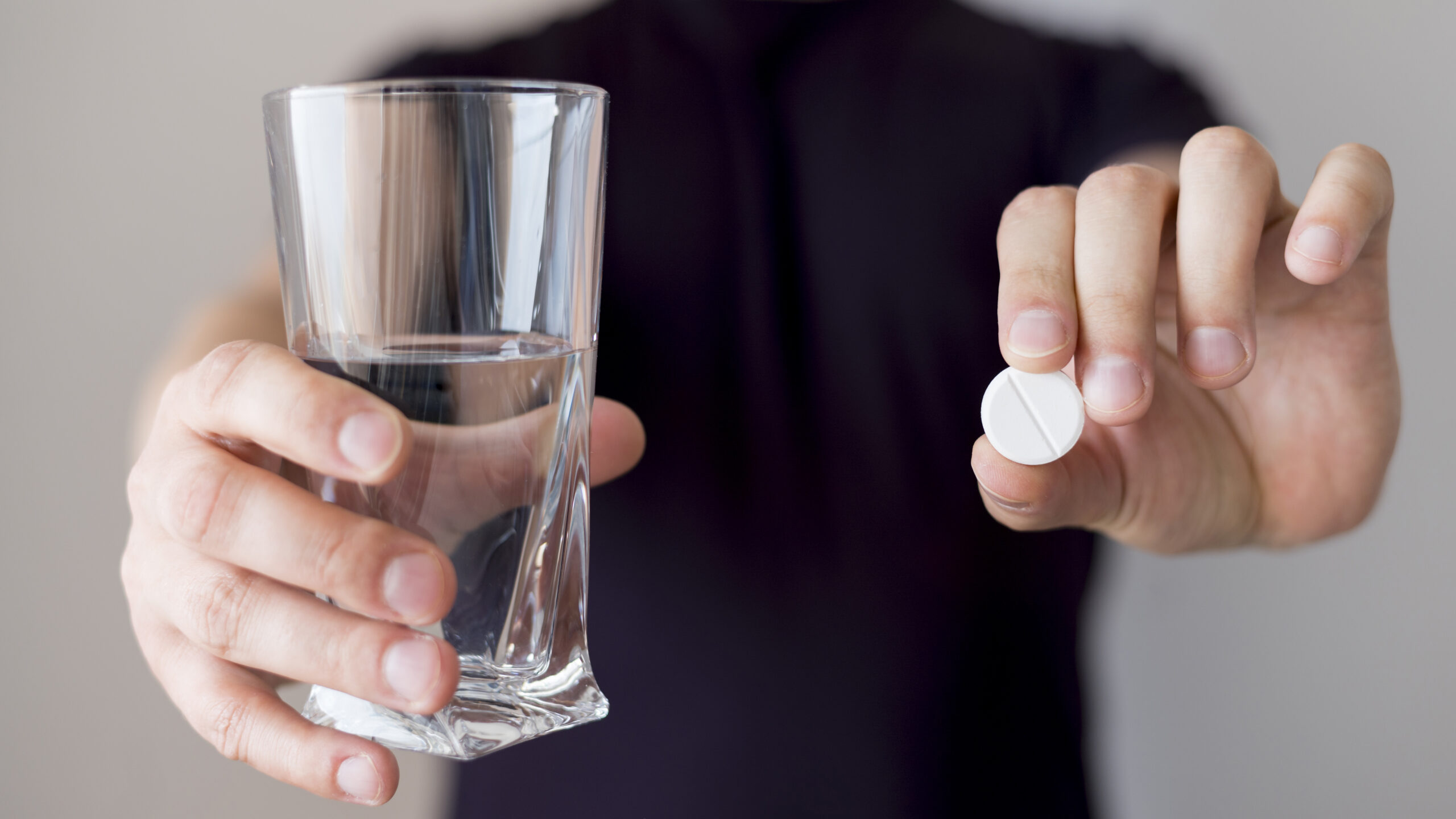
Oral retinoids are powerful drugs that are effective in treating severe acne. They cure or significantly improve acne in most people.
Oral retinoids are usually taken as tablets once or twice daily with food for several months and then discontinued. In some cases, pimples can initially get worse before it improves. To decrease the risk of an initial acne flare-up, retinoids are occasionally given at a lower dose for the first month of treatment.
Retinoids are a very effective drug, but their use is associated with the risk of many side effects. For this reason, and due to the need to periodically perform laboratory tests (before treatment, 4 weeks after starting treatment, then every 3 months), dermatologists should perform retinoid treatment. Due to the harmful effects on the fetus and the higher risk of obstetric complications, it is necessary to use effective contraception, starting at least 4 weeks before treatment and maintaining it for at least 4 weeks after its completion. Retinoids do not affect spermatogenesis and can be safely used in men.
Hormone treatment may be necessary in some people. Estrogen can help balance the effects of androgens, which is why estrogen treatment in the form of birth control pills is sometimes recommended for women with acne. Not all oral contraceptives should be used to treat acne, and some may even make acne worse. This also applies to some types of intrauterine devices and other forms of contraception (e.g. injections).
The benefits of using birth control pills and other hormonal medications may not be noticeable until three to six months after starting treatment. Treatment with hormonal drugs is not recommended during pregnancy.
Many anti-acne medications cannot be used during pregnancy. Any woman who is pregnant or intends to become pregnant should consider discontinuing acne treatment before attempting to become pregnant and discuss further management with her healthcare provider.
When considering whether there is an ideal diet for pimples![]() , we should remember that acne is a skin disease. Therefore, an appropriate diet will not bring satisfactory results, but it may be a significant element of anti-acne treatment. On the Internet, we can find many opinions about what type of diet will be most effective in reducing the symptoms of acne. It includes, among others, gluten-free, vegan, paleo or ketogenic diets. Unfortunately, not all of them may be suitable for us. If it is not properly balanced, it may lead to deficiencies in our body.
, we should remember that acne is a skin disease. Therefore, an appropriate diet will not bring satisfactory results, but it may be a significant element of anti-acne treatment. On the Internet, we can find many opinions about what type of diet will be most effective in reducing the symptoms of acne. It includes, among others, gluten-free, vegan, paleo or ketogenic diets. Unfortunately, not all of them may be suitable for us. If it is not properly balanced, it may lead to deficiencies in our body.
Vitamins and minerals also play a significant role in the acne diet. Particularly important are:
Table of Contents
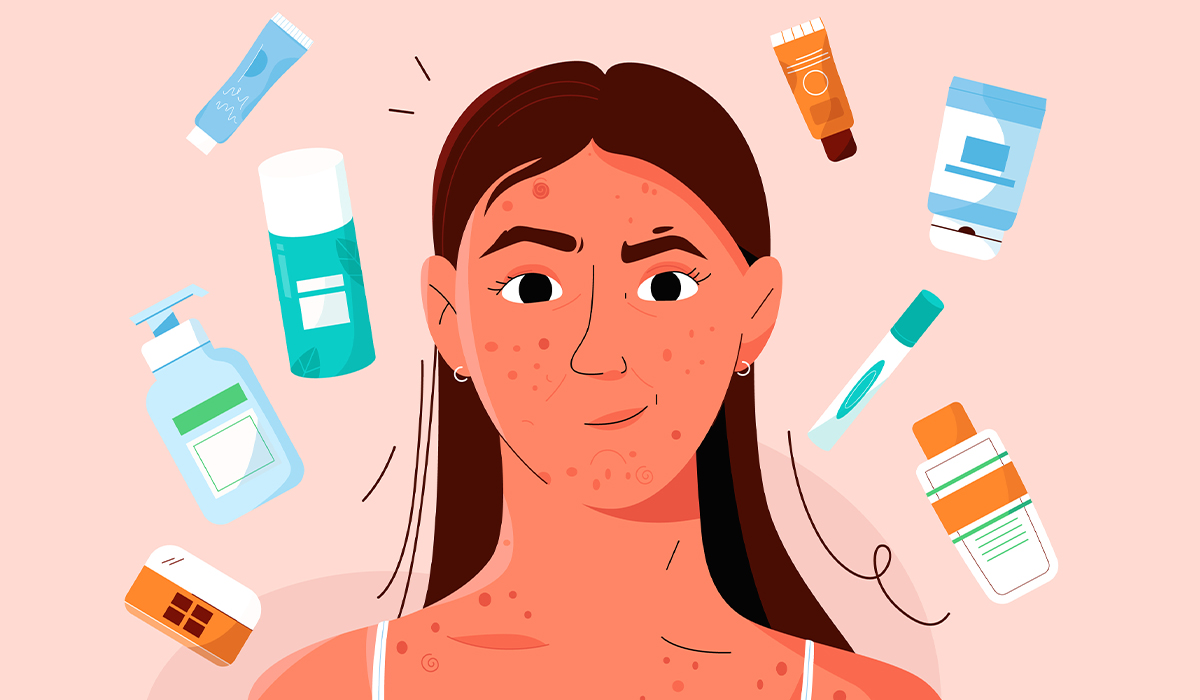
Acne is a skin disease whose main cause is the production of too much sebum. How does it manifest itself?… read more »
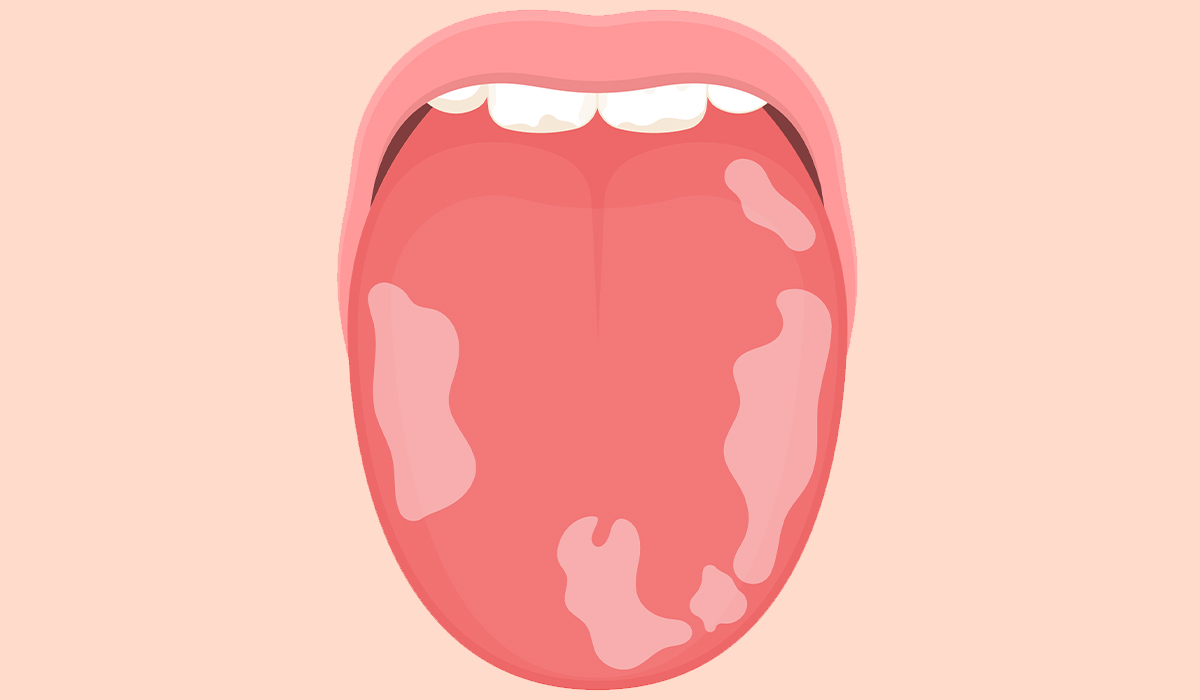
Leukoplakia is a disease that most commonly affects the oral cavity. A complication of leukoplakia can be cancer, so it… read more »
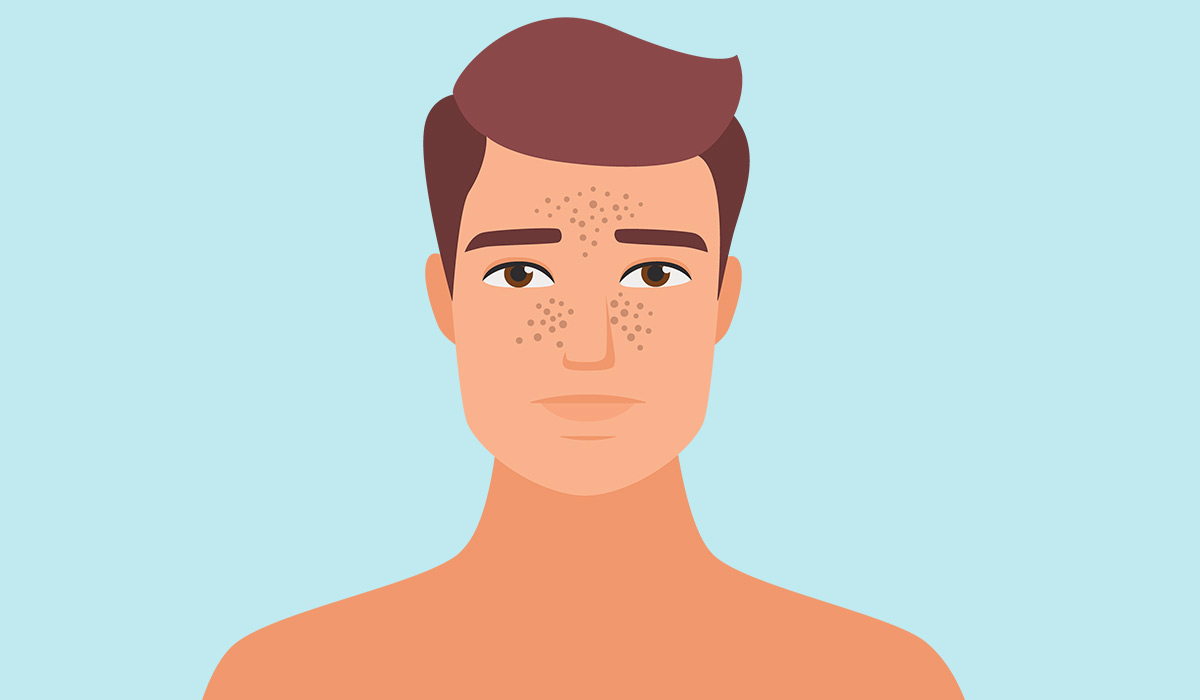
Blackheads are small, dark lesions on the skin. They are occurring when a hair follicle becomes clogged with excess oil,… read more »
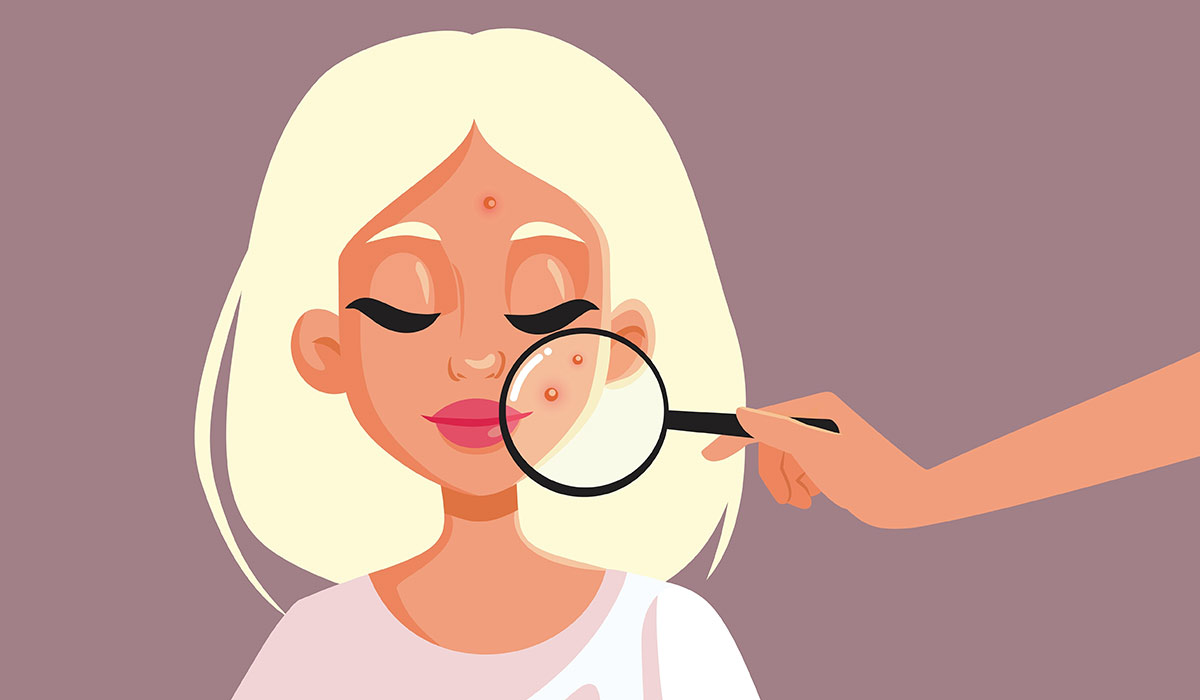
Rosacea is a chronic inflammatory skin condition that is sometimes mistaken for acne, allergic reactions, eczema, and other skin conditions.… read more »
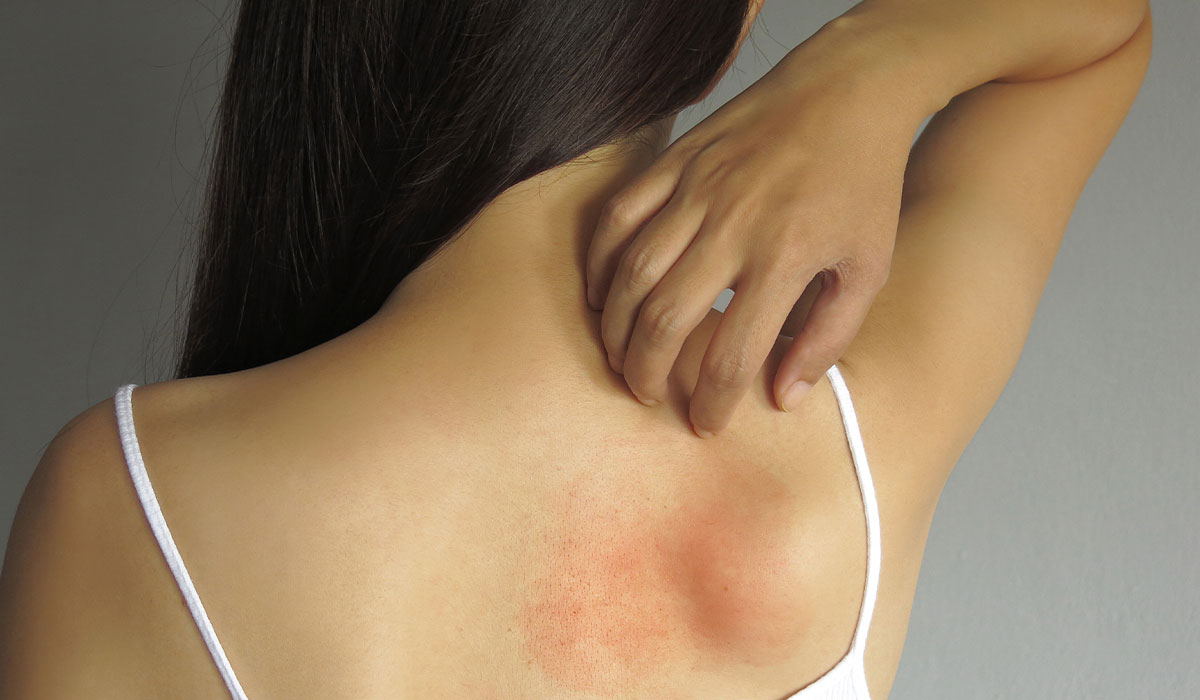
Heat rashes are skin lesions. They occur as a result of excessive sweating due to overheating of the body and… read more »
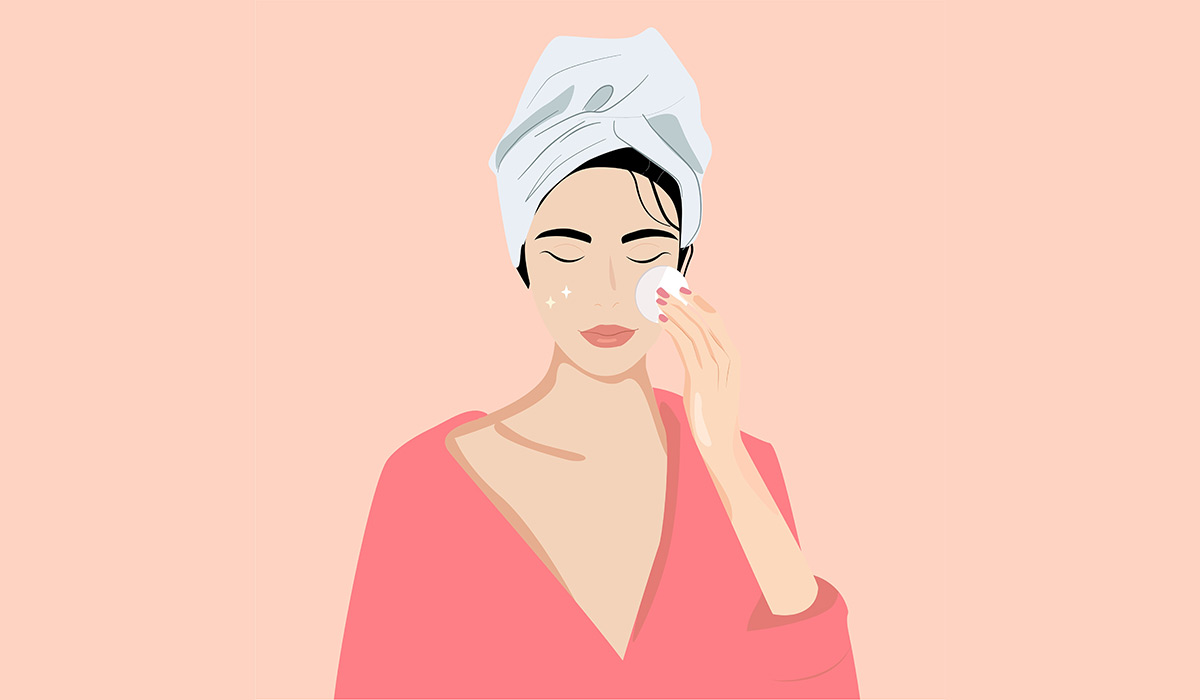
Skincare is the practice of maintaining and enhancing the health and appearance of the skin through various treatments, routines, and… read more »
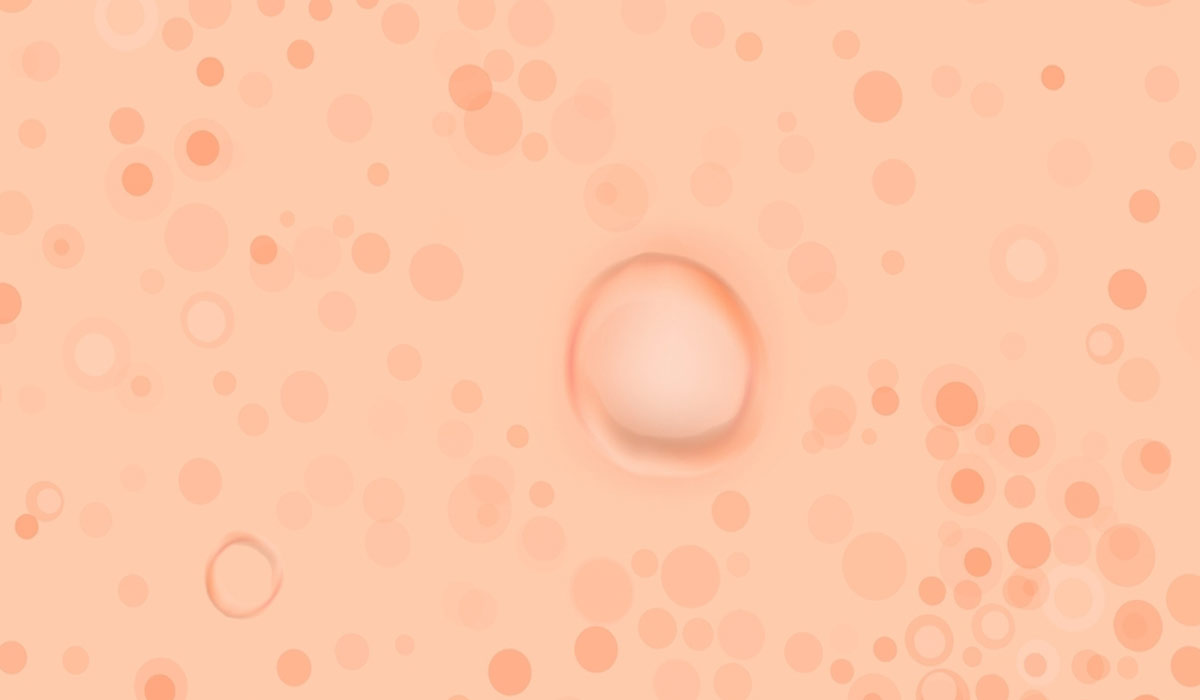
Pityriasis Rosea is a skin disease. It usually does not require treatment, but for pregnant women the disease can be… read more »
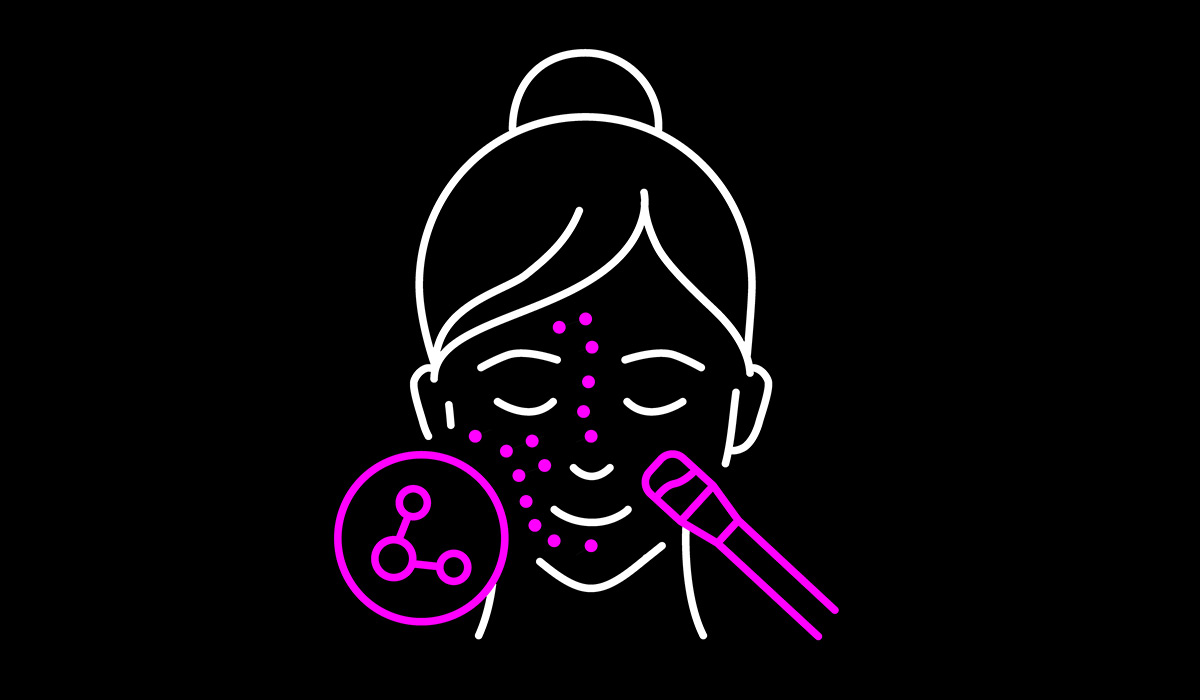
A chemical peel is a procedure that helps to improve the condition of the skin. In some conditions it is… read more »
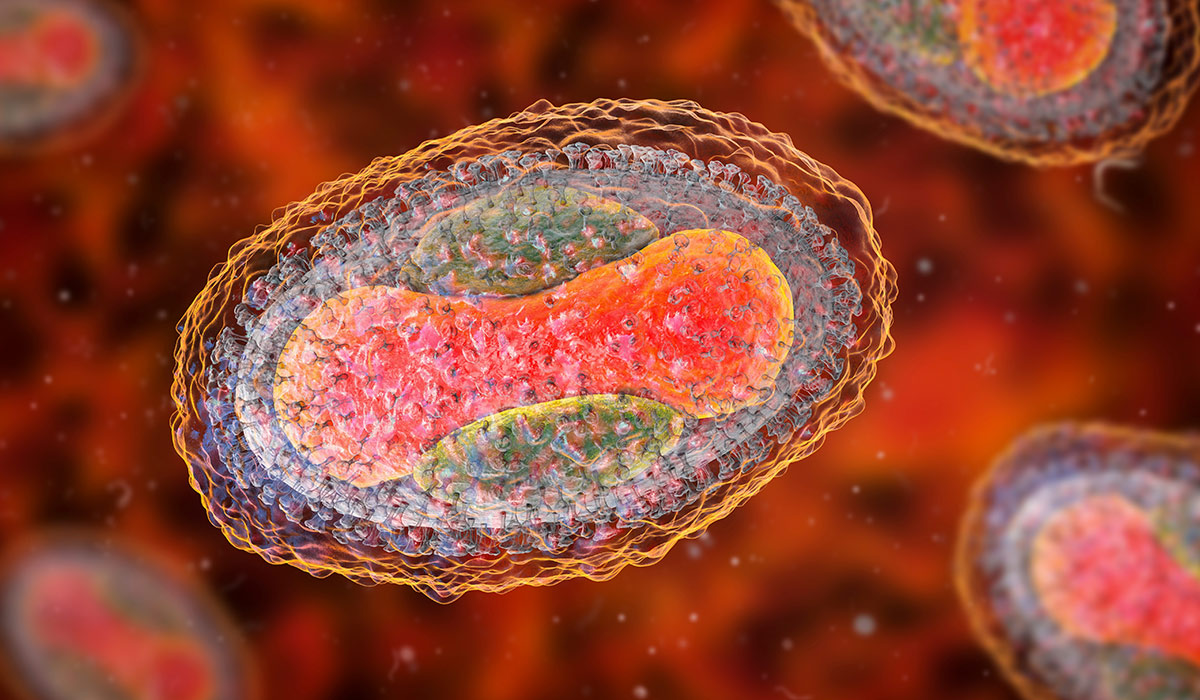
Molluscum contagiosum is a common skin infection especially in children. Find out how to recognise molluscum contagiosum skin lesions. Learn… read more »